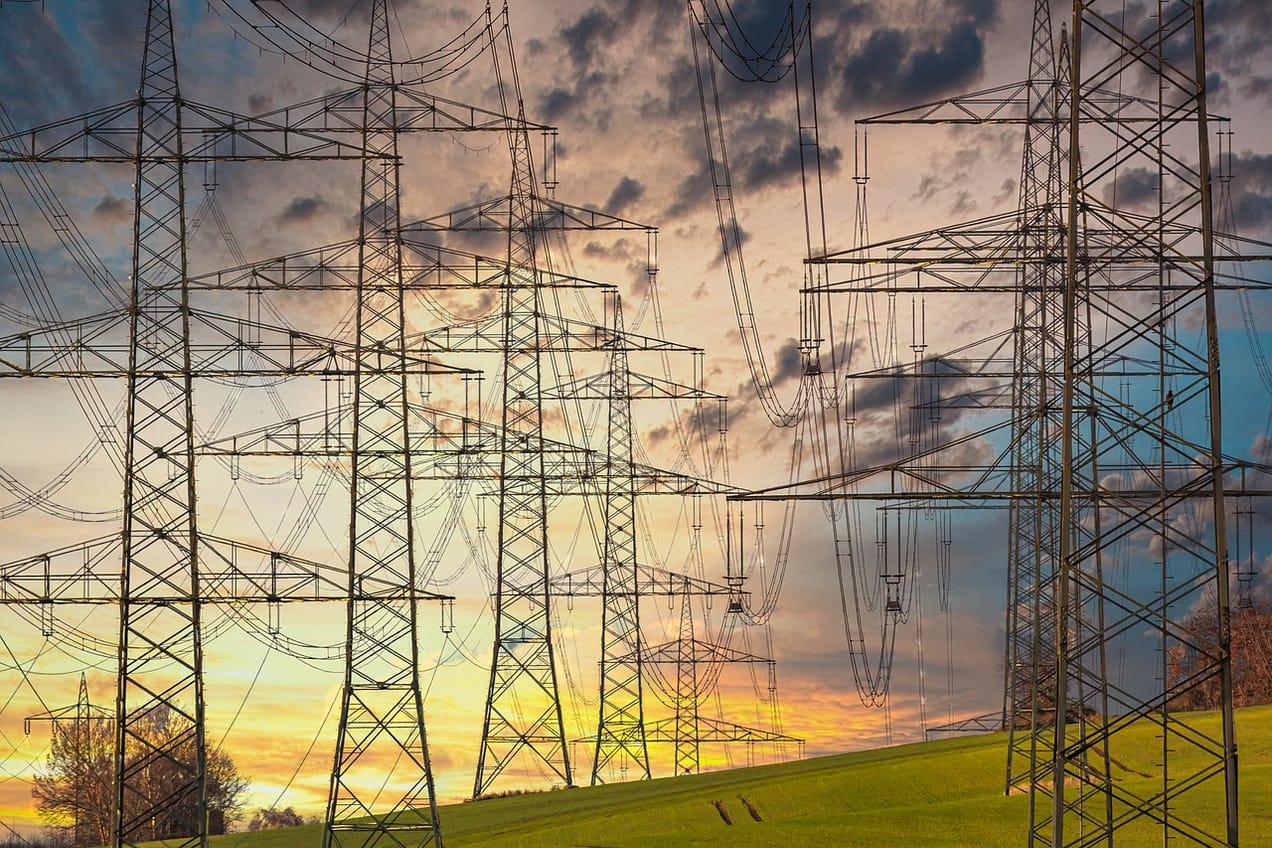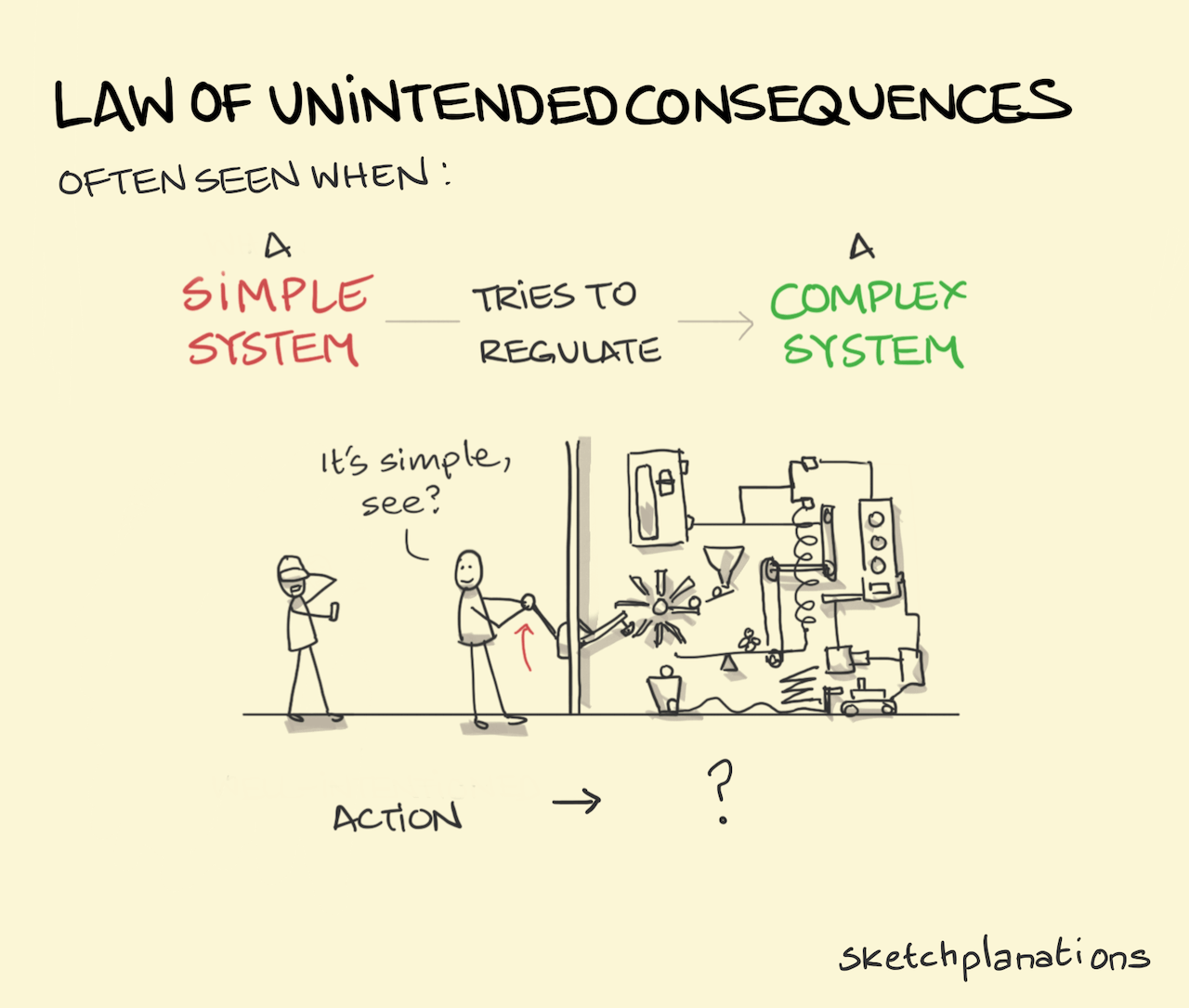
Sunday Brunch: tales of the unexpected
The transition to a more sustainable world is a complex process. Even with the best intentions, there could be some unintended consequences.
Sometimes things don't work out as you expect. Even with the best of intentions the complexity and interconnectedness of systems mean that there can sometimes be unintended consequences.
I recently returned from a business trip to Hong Kong. I lived there and worked with a fantastic team at Morgan Stanley from January 2008 until December 2009 establishing the content development team for Asia ex-Japan.
They were... interesting times. I arrived into a bull market, experienced a global financial crisis, MS moved offices from Three Exchange Square to the ICC (half built at that point!) and the recovery and development in China with hope and optimism.
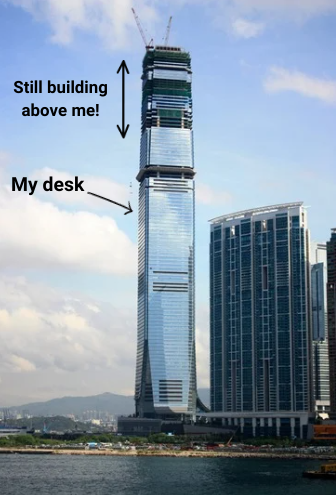
But developing a new function with a blank sheet of paper and working with teams across MS was a wonderful experience and ranks amongst the best times of my career.
So it was great to be able to come back to Hong Kong and meet with former colleagues from MS and see what was the same and what was new. One new thing was the Hong Kong to Zhenzhen high speed rail link.
When first proposed I had thought (along with much of the speculation at the time) that we would see people living in Shenzhen and commuting into Hong Kong (15 mins into Kowloon station and then a hop and a jump on the MTR into Central). However, what seems to have happened is the phenomenon of day tripping and price arbitrage. During 2023, Hong Kong residents made more than 40 million trips via the Shenzhen-Hong Kong port.
For example, they have been heading to Costco in Shenzhen for their big grocery shop
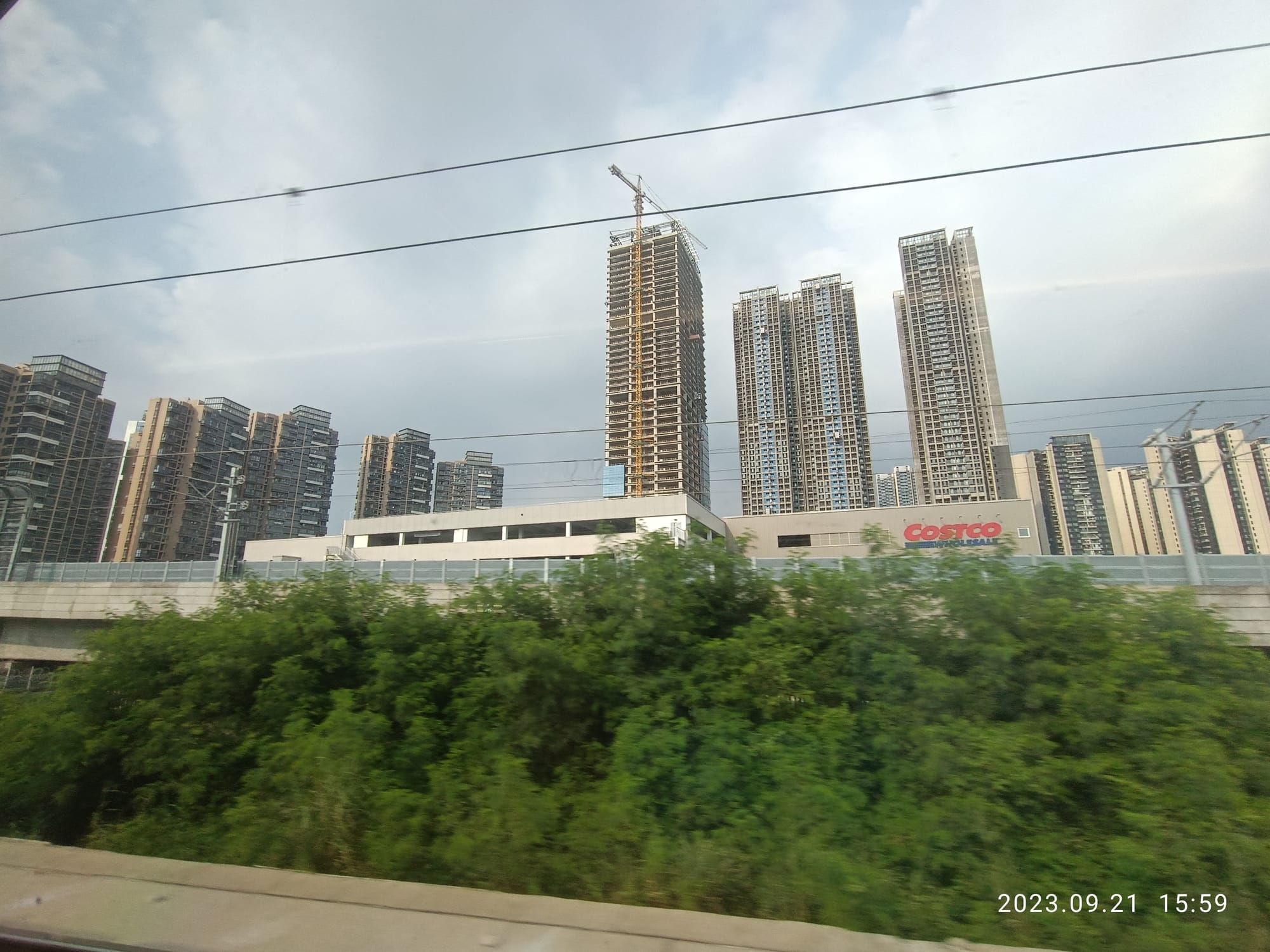
And even going to Shenzhen for a haircut! Really? Let's look at some numbers.
The high speed rail journey from Hong Kong West Kowloon to Futian (the first district you reach in Shenzhen takes 14 minutes and costs HKD 225 in business class for an adult, HKD 112 for a child. That cost drops to as low as HKD 75 and HKD 37 for an adult and child respectively in second class. To put that in perspective, I paid HKD 44 for a regular sized mocha at Starbucks in the IFC Mall in Central.
The average price of a men's haircut in Futian is RMB 88 or about HKD 95.
So that means with return travel included the cost of the haircut in Shenzhen is HKD 245. The average cost of a haircut in Hong Kong is around HKD 250 - 300.
So an unintended consequence of the high speed rail line is that the flow of people is the reverse of what we thought.
The transition to a more sustainable world is a complex process that aims to address pressing environmental, social, and economic challenges. While the overall goal is positive, there could be some unintended consequences that arise during this transition.
Let's look at that and discuss a few examples.
If you are not a member yet, to read this and all of our blogs in full...

Sustainability transitions and unintended consequences
Transition requires change. Change is hard and brings positive and negative consequences. For example as we move away from fossil fuel-based industries and towards renewable energy sources, there might be job losses in certain sectors, such as coal mining and oil and gas extraction. This could lead to economic hardship for communities and individuals heavily reliant on these industries, unless proper retraining and alternative employment opportunities are provided.
Adoption of new technologies and products could generate significant amounts of waste, particularly electronic waste (e-waste) and discarded batteries, if not properly recycled or disposed of. Although this is an area which is being addressed, particularly in China.
A commonly cited consequence of improvements in energy efficiency and the decreasing costs of sustainable technologies is the 'rebound effect' or Jevon's Paradox where individuals and businesses consume more resources, potentially offsetting some of the intended environmental benefits, particularly with regards to biodiversity impacts.
The transition to a sustainable world may disproportionately impact low-income communities and developing countries if the costs of adopting new technologies and practices are prohibitively high. This could exacerbate existing social and economic inequalities, so it is important that local differences are taken into account when considering global solutions.
For example, we previously discussed the removal of oil subsidies in Nigeria potentially driving adoption of rooftop solar. In Lagos approximately 70% of households are connected to the grid and rely on largely diesel generators. Whilst firms such as Arnergy that we discussed are providing solutions to address that rising demand for solar, there is still an affordability issue with the cost of a typical system being ~10x the median annual salary. So getting appropriate funding schemes in place are key.
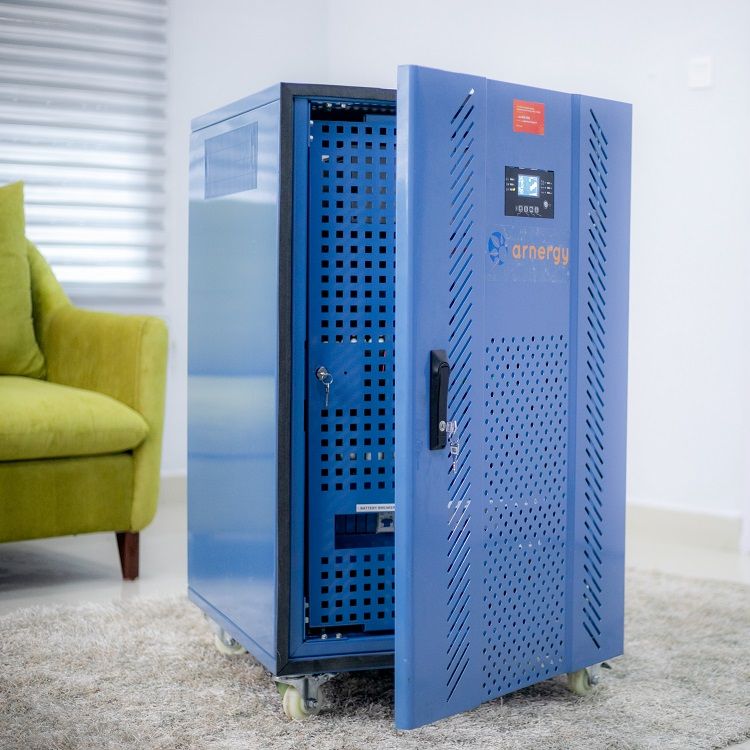
Why was Nigeria importing so much fuel when it has huge reserves (it is Africa's biggest exporter of crude oil!)? It has a lack of refining capacity. Despite 20 licences for private sector players being approved to build new refineries back in 2000, none were built as the subsidies (price controls effectively) raised the possibility of those players not recouping their investments. An unintended consequence.
Let's look at some more examples.
When balance causes imbalance.
Bias in news reporting has long been thought of as something to avoid. Balance and fairness are central to objective journalism, striving for "accuracy and truth in reporting and not slant a story so a reader draws the reporter's desired conclusion." (ONAethics)
However, this can lead to some unintended consequences.
Researchers from Towson University and the University of Wisconsin, studied more than 200 articles published between 2018 and 2020 in 29 different U.S. newspapers, comparing coverage of two issues: the need to reduce food waste and the need to shift to a more plant-based diet. Despite there being strong consensus amongst scientists on the latter issue, newspapers were covering it as an open debate.
The researchers compared this with media coverage of human-caused climate change ten years ago where a similar open debate approach was taken with "climate deniers quoted in the media often [having] financial ties to industries that were trying to avoid efforts to address climate change." More recently public perception has driven that 'openness' of the debate down.
If there is a delay in scientific consensus being accepted by the general public effectively creating doubt through the presentation of an issue as a more open debate than it is, this could further delay acceptance of a problem and the move to the next step: enacting solutions.
Too much of a good thing?
Solar has been a big success story. Global solar PV annual installations grew by more than 80% in 2023 year-over-year and we frequently hear of days where the proportion of a region's electricity generation from solar is hitting new highs. For example on 2nd May 2024, Solar accounted for more than 72% of California's electricity generation in the middle of the day.
However, while a reasonable amount of solar is good for the solar operators, too much of it, all producing at the same time, pushes the marginal price to close to zero. Too much of a good thing.

Some states in Australia have a lot of solar, including roof top solar on residential properties. The chart below shows, for the states of South Australia and Victoria, what percentage of dispatch periods had negative prices. This means that the electricity generator paid for the grid to take their electricity.
The chart is telling us that for 27% of dispatch periods in South Australia and 24% in Victoria, the price the electricity generator receives is negative. That does not make for great solar economics.
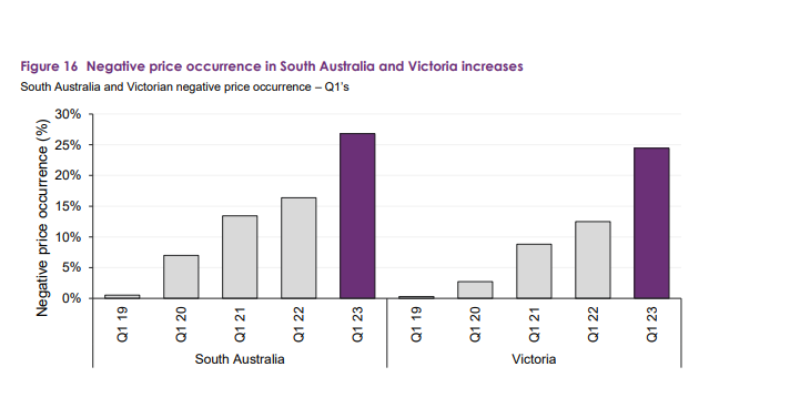
Obviously if we had cheap battery storage that would be less of an issue. And big batteries are being built
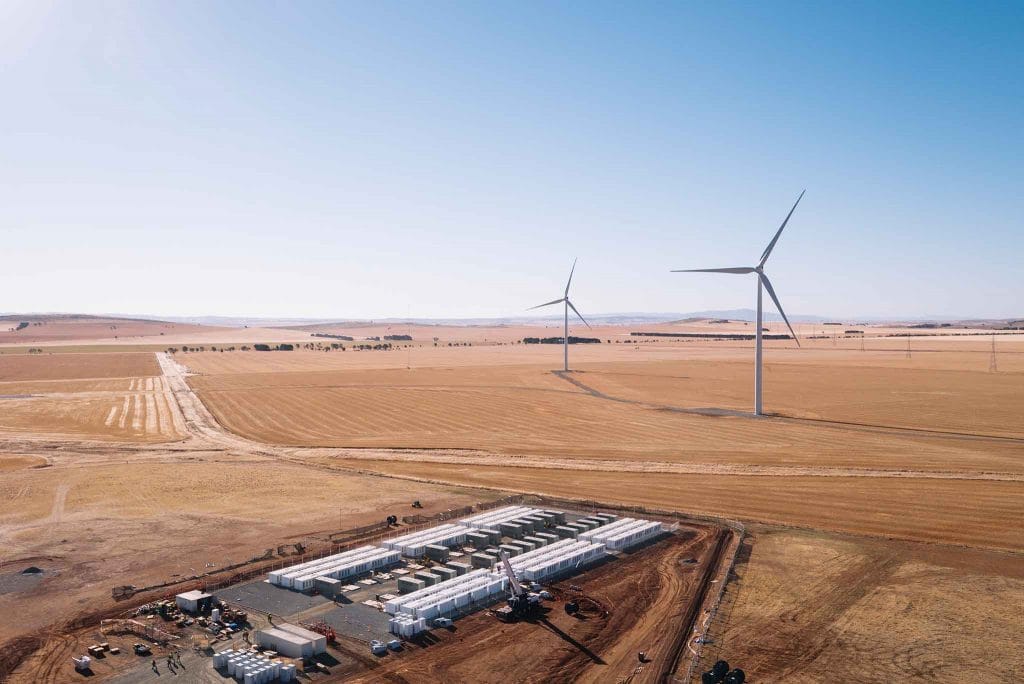
Can a driver of adoption slow down that adoption?
Finally let's look at this seemingly counter-intuitive statement and an example.
Octopus Energy have been leading the charge amongst the energy companies servicing the UK in rolling out heat pumps.
They are building a mass market for heat pumps, with innovative marketing and vertically integrating manufacturing heat pumps, installing them and financing them too. In addition they have a range of tariffs which is in turn driving innovation in the industry.
They claim that 90% of their heat pump quotes (including installation) beat the national average. However could there be an unintended consequence of this lower pricing push?
Nathan Gambling, heating expert and host of BetaTalk, the renewable energy and low carbon heating podcast, thinks there could be. In a recent LinkedIn post he highlighted that in his discussions with heat pump engineers, installation companies and others he has heard that for customers who are not able to get an Octopus Energy installation often stop considering a heat pump altogether.
He speculated the following reasons:
- If a customer is told that their home does not meet Octopus Energy's criteria, they may incorrectly assume that they are not suitable for a heat pump at all. Independent installers don't have such strict criteria.
- When comparing installation pricing between Octopus and independent installers the higher price from the independents can be interpreted as being exploitative. However, the installation could be a loss leader for Octopus to sell in longer term services which is not an option for an independent installer.
The reality is that we need large companies like Octopus Energy and independent installers to get widespread adoption. A big part of that is education of consumers and of installers.
So even with the best of intentions the complexity and interconnectedness of systems mean that there can sometimes be unintended consequences. Comprehensive impact assessments can cover some of those things as well as understanding that it's a continually evolving journey that needs nudges along the way.
Finally, did I mention that it rained the whole week I was in Hong Kong? The transition between seasons used to happen like clockwork, but chatting with people they have all observed an increased volatility over the past few years and all point to Hong Kong feeling the impacts of climate change.
But that's a topic for another Sunday Brunch...
I shall leave you with the view from Victoria Peak (aka 'The Peak') which is the highest point on Hong Kong island. The view was...er.. majestic.
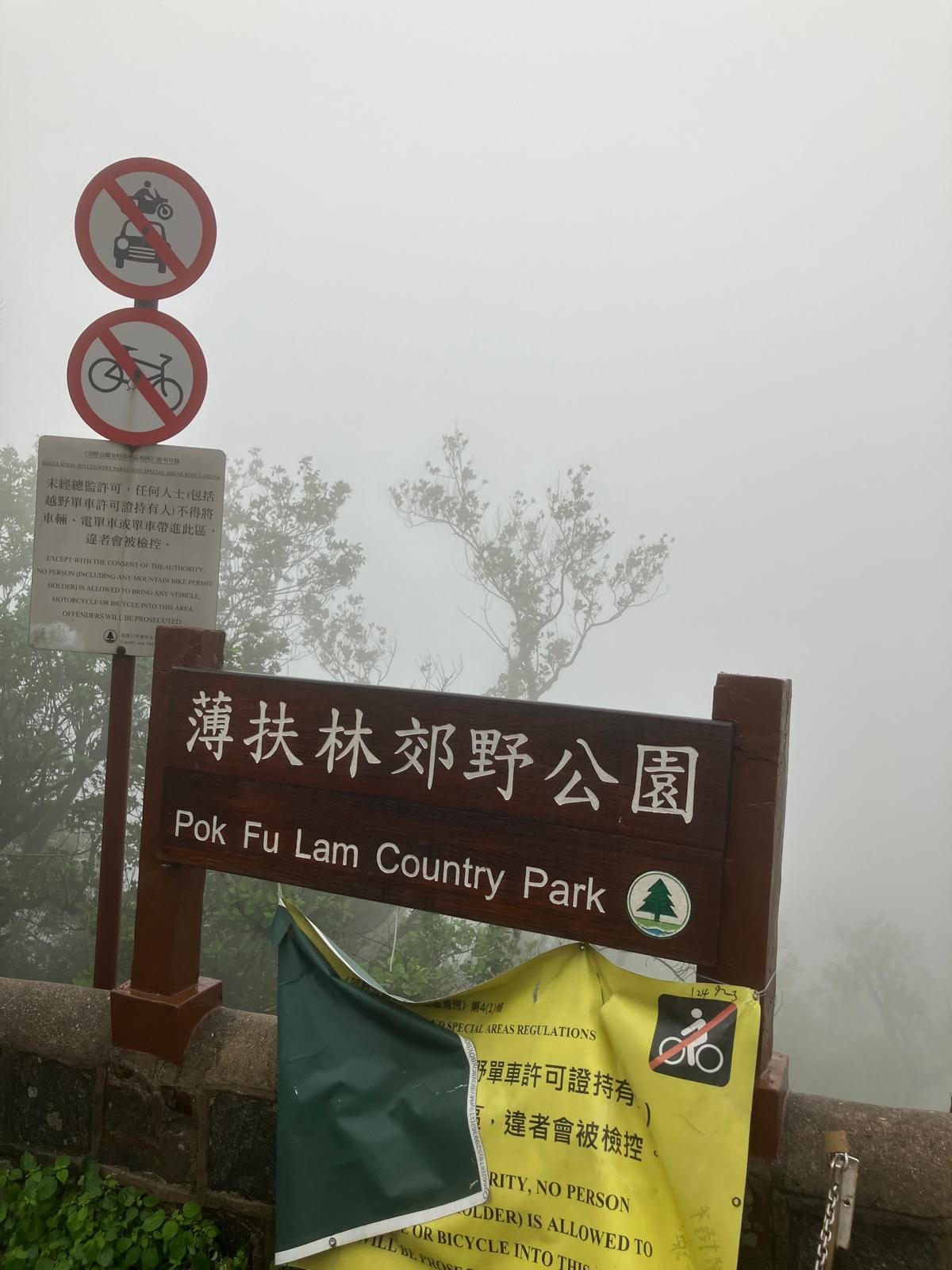
Something a little more bespoke?
Get in touch if there is a particular topic you would like us to write on. Just for you.
Contact us
Please read: important legal stuff.


